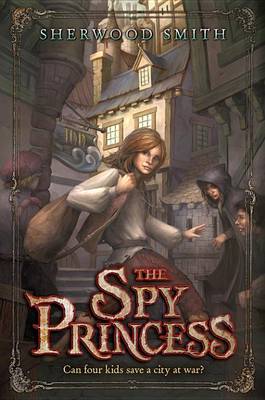
Briana @ Pages Unbound
Written on Jul 21, 2012
Review: The proper plot elements are all in place to make this an exciting read—spies, revolution, magic, children saving the land—but the execution was not quite there. I personally found the beginning parts of the novel somewhat boring, including the part where the people rush in and try to overthrow the king. If that could have been more interesting, there are issues here.
One of those issues might be characterization. Lilah is not particularly likeable or remarkable. Overall, she is average, whether she is being proper Lady Lilah or village boy Larei. She is not the type of protagonist who carries the story with her personality, but rather something of a stock character who carries out the standard actions one would expect in a book of this natures. She (naturally) hates being noble and all the duties and frilly dresses that come with the job and so sneaks out to see what the commoners are up to. Once she is convinced the current monarchy is corrupt, she joins the already developed revolution. When the adults think she and her friends are too young to be helpful, they dress up as spies and perform some Robin Hood-like actions. The plot is typical, which is the reason it is such a shame Lilah and her friends are not more dynamic or unique.
The best character is perhaps Lilah’s older brother Peiter, who is more deeply involved in the revolution. A cripple, Peiter relies on wisdom and books more than physical strength and is the one who offers readers the best thoughts on proper government and the other questions that are naturally raised during a revolution. He is kind, careful, and deliberate. Basically a hero for readers who like quiet strength.
The world-building is also average. I needed the Internet to inform me that all of Smith’s books I have read—Crown Duel, A Posse of Princesses, The Spy Princess—all take place in the same world. It was not apparent to me simply from reading the books, beyond the presence of a few standard types of magic in each (the fire sticks, for example). I also found some of the magic in The Spy Princess random and incongruous with…everything…though to say more would be a spoiler.
The best recommendation The Spy Princess has is that there is a good mix of both children and adults action. The children trust some adults to help them with their spying endeavors, though they must hide their actions from others, and they do take the time to put in some training before rushing off to save the world. Kids and adults suffer various successes and failures, which creates a realistic balance.
Otherwise, the book is standard and will appeal mostly to those who regularly enjoy books with this type of plot.
This review was also posted at Pages Unbound Book Reviews.
